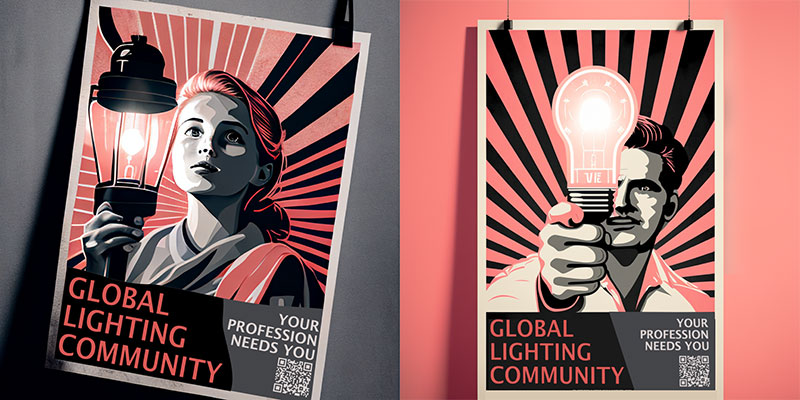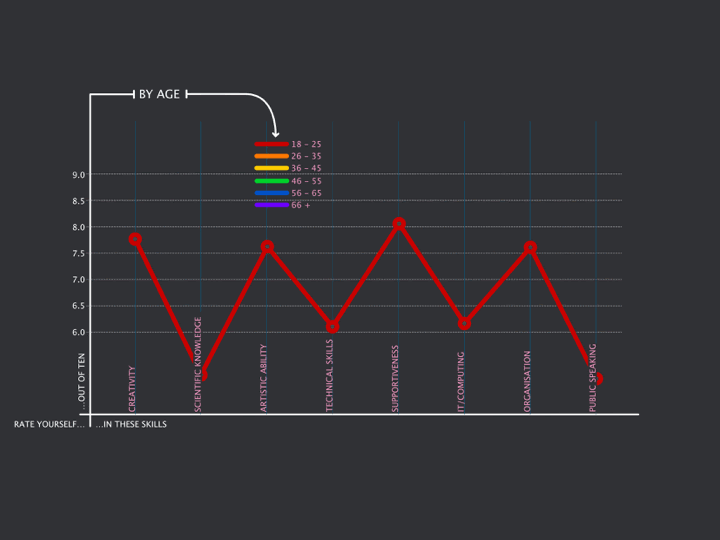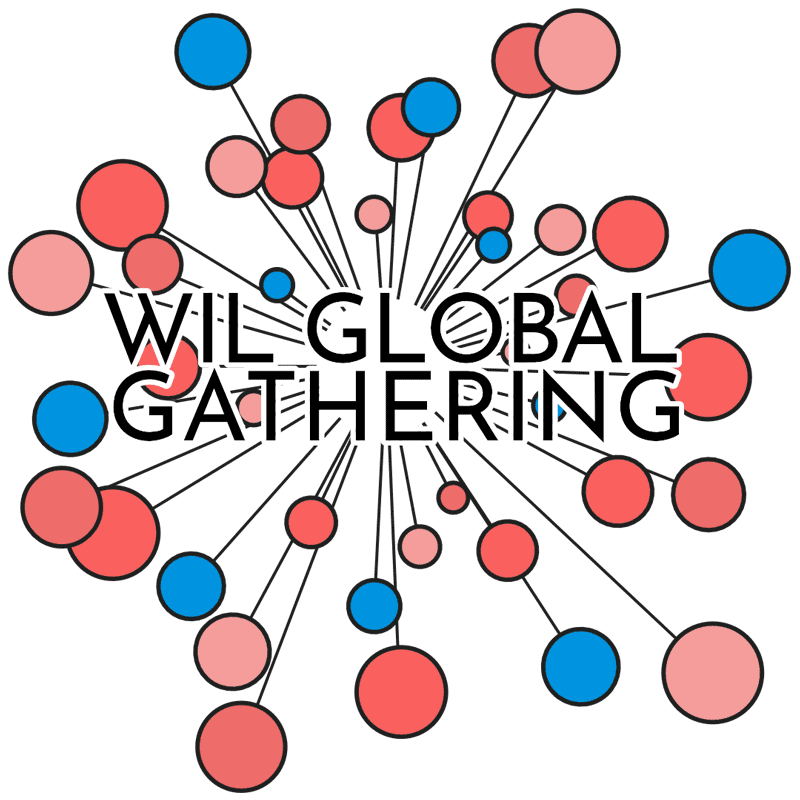Global Gathering Survey
Introduction
During Covid, WIL created a one-day virtual event for International Women’s Day, the Global Gathering, starting at 6:00 am in the UK that ran through to 7:00 pm UK time to encourage participation from people in all time zones. Throughout the day, the event shifted focus from Asia Pacific to Europe, the Middle East, Africa, and the Americas. The event ran alongside a social networking feature where attendees could connect with other members of the community using a random matching software. The Global Gathering ran again in 2022.
In 2023, instead of connecting the community together in this way, the project decided to undertake a “Global Gathering” of data instead. WIL launched a survey aiming to examine the lighting profession in the context of the theme of International Women’s Day 2023 Embracing Equity. The aim was to gather a comprehensive impression of the lighting industry both in terms of where it was thriving and where it needed to improve in the area of Gender Equity.
The hope was that the results would provide a valuable contribution to the profession as a whole or at least create a line in the sand for future evaluation and thought.
WIL called upon its community and supporters to assist in creating a global gathering of information by completing a survey, aiming to investigate and therefore ultimately embrace equity in regard to working practice in all aspects of the lighting industry. The survey was open to and welcoming inputs and information from all genders.

What is Gender Equity?
Gender Equity refers to the principle of fairness and justice in the treatment and opportunities available to people of all genders, ensuring that no individual is disadvantaged or discriminated against based on their gender identity or expression. Thus it seeks to level the playing field and dismantle systemic biases that have historically favoured one gender over another.
Gender equity acknowledges that different genders may face unique challenges and strives to address them through policies, practices, and attitudes that promote inclusion and equal access to resources, education, employment, healthcare and other opportunities.
Achieving true equality requires recognising and valuing the diversity of experiences and contributions of individuals across the gender spectrum. Gender equity is crucial for creating a more just and inclusive society, where everyone has the chance to reach their full potential, free from the constraints of gender-based discrimination or stereotypes. By fostering a more equitable world, we not only promote individual well-being but also enrich our communities and societies as a whole.
Why do we need Gender Equity in the lighting industry?
Gender equity in the lighting industry is crucial for a variety of reasons. Firstly, it fosters diversity of thought and perspective. When there is a balanced representation of genders in the industry, it brings different viewpoints to the table. This diversity of thought often leads to more innovative and creative solutions.
Secondly, it helps to break down stereotypes and biases associated with certain industries. By actively promoting gender equity, we challenge the notion that certain fields are exclusive to one gender. This encourages more women to pursue careers in STEM (science, technology, engineering, and maths) fields, ultimately leading to a more balanced workforce.
It is also essential that the lighting industry takes into account the needs and preferences of all users. Having a gender balanced team involved in the development process ensures that products and designs are created with a holistic understanding of diverse user requirements.
Additionally, promoting gender equity leads to a more inclusive work environment. When women are provided with equal opportunities and support, it creates a culture of respect and mutual understanding. It has been demonstrated that This contributes to increased job satisfaction, improved teamwork and ultimately, higher productivity.

What is the point of gathering data?
Data is the lifeblood of informed decision-making and progress in any field. It provides objective, measurable insights into various aspects of society, economy and environments. Data allows us to understand trends, identify patterns, and uncover hidden correlations that might otherwise go unnoticed.
It also serves as a benchmark against which progress can be assessed. When used effectively, data empowers individuals, organisations and governments to make evidence-based choices that lead to more efficient resource allocation, targeted interventions and improved outcomes.
Additionally, data is a powerful tool for advocacy and awareness-raising, providing tangible evidence to support arguments for reform. It wields the potential to ignite meaningful change by providing us with the knowledge and evidence needed to address pressing issues and drive progress in our communities and beyond.

What did the Global Gathering survey contain?
Despite originating from Women In Lighting, the survey was designed for everyone and the hope was that all genders would participate.
Everything in the expansive survey was anonymous and all questions were optional. We suggested that if participants felt that answering a particular question acted as an identifier or made them uncomfortable that they should move on to the next question. The results are shared as aggregated data only.
Many of the questions came from women and men around the world and we thank everyone that responded with suggestions of what to include. Special thanks to the WIL ambassadors and the partners of the project who contributed greatly to its content.
Some questions may have seemed irrelevant but we wanted to cross reference many different things. For example, job fulfillment, digital equity and well-being can all be cross referenced through the lens of gender equity. The survey took around twenty minutes to complete and covered a multitude of topics.

What did the Global Gathering survey find?
Almost 800 people completed the survey from 73 countries.
The majority of people completing the form were women (69.1%), possibly as the survey originated from the WIL project so despite our attempt at inclusive messaging, we didn’t quite nail getting an equal amount of men to contribute.
We learnt that we are not questionnaire experts (not that we were in any doubt!) and despite the majority of participants making no comment on the surveys content, a section of people felt the questions weren’t relevant to them. In particular, people who were self employed or in entertainment felt that the survey wasn’t applicable in all instances. There was also a handful of people who felt the questions were leading in some way. We appreciate all the comments as it will allow us to improve should we undertake something like this again.
We are not data experts either so the pages that follow are not analysed or accompanied by judgement. They just present the data as given and are therefore available for those interested to interpret as useful.
There are some extremely interesting data slices – some are very positive. For example, it’s great to hear of all the positive policies that many companies have in place. Some are very negative – the high percentage of people reporting on sexism and racism in the workplace is alarming.
We have tried to intersect some of the data that we found particularly interesting. If there is something you would like to know that we have missed, or is of special interest to you, please contact us and we will happily share that particular slice of information. We are happy to share data (in specific slices and totally anonymised) for you to preform your own analyses. Please look through the report, see if there is anything that interests you or that you would like to review further and let us know.

In the section where we asked if participants had anything else they wanted to tell us, it was overwhelming positive and we thank you all, both for undertaking the survey and for supporting the project. For the small percent that wrote negative comments, we are sorry that you didn’t understand the reason behind us undertaking the survey or the perhaps the reason for the WIL project at all.
According to UN Women’s most recent report delivered in March 2023, it stated that at the current rate of progress, it will take 286 years for the world to achieve gender equality. The World Economic Forum states will take 132 years to close the global gender gap. Regardless of which projection is most accurate, the bottom line is that the current rate of “progress” is unacceptably slow for something so long overdue. Let’s face it, it took until 2023 and Claudia Goldin winning the Nobel prize in Economics to prove that motherhood impacts the gender wage gap. We believe that the lighting industry should be doing its bit to move things forward.
We welcome everyone to join and to be part of inspiring women everywhere and helping us to grow the network wider, ultimately supporting diversity and equity in all aspects of lighting. We want everyone to join in because we only get better together.
The Report
Please wait a moment for the report to load.

